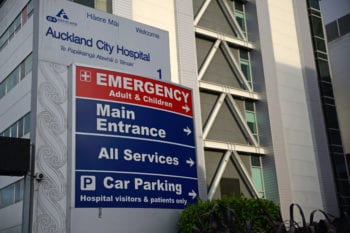The Healthcare System in New Zealand

New Zealand’s healthcare system is a universal public system. It is one of the top 20 healthcare systems in the world, on a par with the United States and the United Kingdom. With the 1938 Social Security Act, New Zealand brought into law universal and free healthcare. The Act requires that all New Zealand citizens have equal access to the same standard of treatment in an integrated, preventative health care system.
Here’s what expats and digital nomads need to know about New Zealand’s healthcare system.
Does New Zealand Have Free Healthcare?
The cost of healthcare in New Zealand varies. The public healthcare system in New Zealand operates as a single-payer healthcare system. The government pays for the majority of healthcare costs using public tax money – up to 9% of New Zealand’s GDP.
Government funding means that the New Zealand healthcare system, for citizens and permanent residents, is either free or low-cost. Hospital and specialist care are covered if the patient is referred by a general practitioner (GP). Free medical services can include diagnostic tests, immunizations, cancer treatment, and appointments, and, for children, dental care and prescription medication.
To see a GP at a standard medical practice, patients pay a fee, between $19 and $55. Seeing a GP at an after-hours clinic can cost $75 or more. Those earning below a certain annual income may qualify for a Community Services Card or CSC. For health care, this reduces the cost of GP visits and prescription medication costs.
Many prescription medications are subsidized at an average cost of $5. To be subsidized, medications need to be approved by the health authority called PHARMAC. If a medication is not approved by PHARMAC, it may still be available in New Zealand, but at a much higher cost.
Related: Health Insurance in New Zealand
Who is Eligible For New Zealand Healthcare?
Are you covered for public health care in New Zealand? You may be, even as an expatriate. You are covered for New Zealand healthcare if you are a New Zealand citizen or permanent resident. You are also covered if you are a worker on a New Zealand work visa valid for 2 years or more.
New Zealand has reciprocal healthcare agreements that provide some coverage, especially emergency care, to citizens of Australia and the United Kingdom. However, there are restrictions and limitations in place.
Digital nomads on a tourist or visitor visa of 6 months or less usually are not eligible.
If You Are Not Covered You May Need Private Health Insurance
Outside of these categories, you will need to pay for your health care while in New Zealand.
If you are in New Zealand on a working holiday visa or a student visa, you must pay for private health insurance. If you are pregnant and visiting, you must be able to cover the costs of your maternity care. Learn more about maternity care for visitors and expats in New Zealand here.
Best Insurance for Expats and Foreigners Living in New Zealand

Cigna Global Insurance Plan
- Flexible plans tailored to your needs and budget
- 1.5M+ providers in 200+ countries
- 24/7 multilingual customer support
How to Access and Receive Healthcare in New Zealand
There are several different ways to access healthcare in New Zealand: public medical practices, after-hours centers, hospitals, or specialists. Here is how you might access each type of care.
Are you living in New Zealand for a year or longer? If you are, sign up with a medical center and a GP. Your medical center and GP will be your first point of care. They can provide over-the-phone prescription renewals and referrals for services like cancer screening. You can also sign up to access your medical records online.
Do you need medical care on the weekend or late at night? After-hours clinics take walk-in appointments to see a GP quickly. Expect to pay a higher fee than at a standard GP. After-hours care is often supported by an after-hours pharmacy so you can get medications right away.
Are you having an emergency? Go to your nearest hospital’s emergency room. Though New Zealanders try to avoid emergency rooms because of long wait times, you will receive excellent care.
Do you need to see a specialist? You may ask your GP to refer you to a specialist. Be aware that the public system waiting time to see certain specialists, such as a dermatologist or a psychiatrist, can be 3 to 9 months.
You can also make a private appointment with a specialist in private practice. Most specialists cost several hundred dollars per appointment, before test fees and other considerations. If you must see a private specialist, the cost of healthcare in New Zealand notably increases.
You will have the best access to New Zealand’s healthcare system in a town or city. If you are in a rural area, you will have limited access to GPs and specialists, including midwives, dentists and opticians.
Many New Zealanders Choose Private Health Insurance
Private health insurance can reduce the wait time and cost for you to see a specialist. This is a major reason why more New Zealanders are now choosing the support of a private health insurance policy.
In New Zealand, private health insurance allows patients a wide choice of specialists and the opportunity to receive treatment in private hospitals with less waiting time. Private hospitals in New Zealand provide a more private and comfortable overall experience.
Private health insurance can support a wider range of prescription medication. It often provides some coverage for medications that are not funded by PHARMAC. There may be a price cap, or the coverage may only be available when you are ill enough to be hospitalized. Check your insurance and ask questions.
Private health insurance often offers dental and vision options. For adults, dental and vision care is not supported in New Zealand unless you have a Community Services Card. This means that wise use of dental and vision options can bring a good return on the cost of private health insurance.
Related: Health Insurance in New Zealand
ACC Covers Healthcare After Accidents
Everyone in New Zealand, including visitors, tourists, and expats, is entitled to free medical care for accidental injuries. This is known as the ACC or Accident Compensation Corporation program. It is an important part of healthcare in New Zealand. ACC is funded by a taxes and focused levies, including a levy paid by people working as private contractors in New Zealand.
If you get hurt under accidental circumstances in New Zealand, you are covered, even if you caused the accident. This includes everything from hiking mishaps to automobile accidents. When you visit a GP or hospital, you’ll be asked to fill out a form so the ACC program will cover the cost of your care.
While ACC is a good program, it’s not a substitute for comprehensive medical insurance. As with specialist care, ACC approvals can involve long waits and frustrating delays. Expats and digital nomads should carry their own private insurance plan.
Read: Health Insurance in New Zealand
Challenges and Changes
The New Zealand healthcare system has some problems. Like many countries with a single-payer system, New Zealand struggles with long waiting times and other inefficiencies. Patients with complex needs may need to advocate for themselves. And it is challenging when a recommended medication for treatment is not funded by PHARMAC.
New Zealand is working towards healthcare change and improvements. One change is to have healthcare for Māori and Pasifika communities driven by those communities. The Ministry of Health is also improving regional access to healthcare for consistent service and funding.
New Zealand’s health care system remains robust. Its well-planned response to the COVID-19 pandemic was praised by medical experts worldwide. The great majority of New Zealand is vaccinated against COVID-19. Overall, you can be confident that the New Zealand health care system is working to provide high-quality care.
Related:
Author: Emily Cotlier is a senior editor who made the move from the U.S.A. to New Zealand. For International Insurance, she clarifies international visa and immigration requirements, shares travel resources, and advises on relocation challenges. She’s traveled through five continents and Oceania, and she still loves to travel both in Aotearoa New Zealand and around the world.
